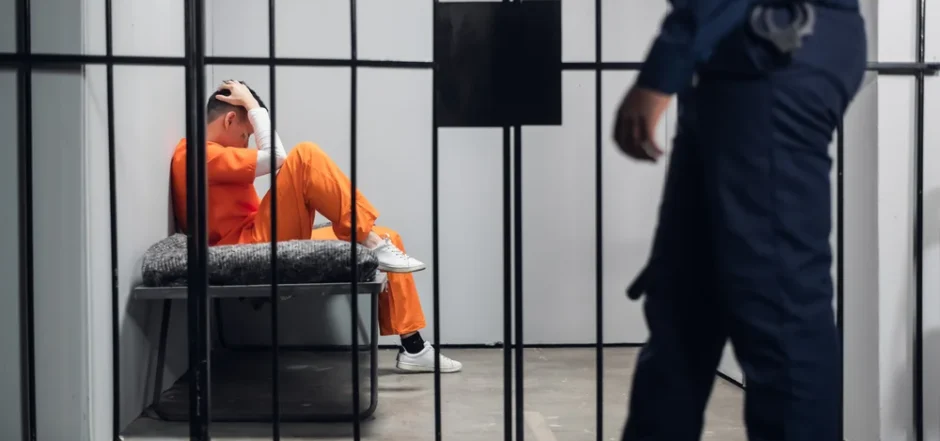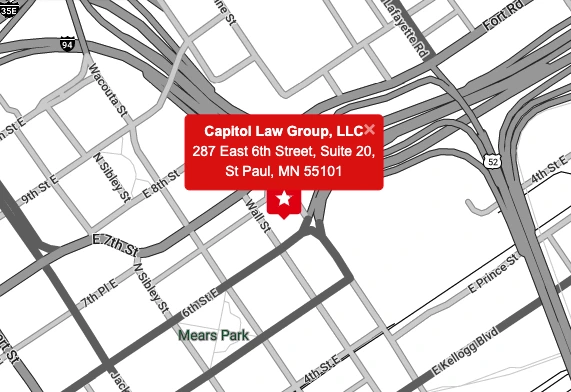A St. Paul Criminal Defense Attorney Talks About Violent Crime Defenses

Generally, a simple lack of evidence is the best defense in most felony cases. In American courts, the presumption of innocence is incredibly strong. Ramsey County prosecutors must have overwhelming evidence of guilt to overcome it. Sometimes, circumstantial evidence is enough. But most Ramsey County jurors require direct evidence of guilt. Many times, such evidence is either unavailable or unreliable.
Nevertheless, an affirmative defense is appropriate in some cases. That’s particularly true in many violent crime prosecutions. These defenses are a high-risk, high-reward strategy. To establish affirmative defenses, the defendant generally must testify. That’s a risky strategy, because it exposes the defendant to aggressive cross-examination. However, these defenses often have a high reward. If a jury believes such defenses, they nearly always result in not-guilty verdicts.
The nature of Ramsey County criminal proceedings reduces some of this risk. St. Paul criminal defense attorneys resolve most cases through pretrial negotiations. So, the defense becomes leverage during these negotiations, and there’s no reason for the defendant to testify.
Insanity/Mental Disorder
St. Paul criminal defense attorneys can use this defense during both the guilt/innocence phase of a criminal trial and as mitigating punishment evidence. Each context is different.
During the trial itself, insanity is a defense if the defendant suffered from a mental disease or defect which made it impossible to determine right from wrong. So, there must be both a medical diagnosis of a disease or defect and a physician’s conclusion that the defect essentially eliminated judgment ability. St. Paul criminal defense attorneys can only use defenses like temporary insanity and irresistible impulse in limited situations, if at all.
During the punishment phase, however, more evidence on this point is admissible. For example, the brain does not fully develop until age 25. Youth is not a mental disease or defect, but it could affect the way a judge or jury punishes a young adult defendant.
Intoxication
Typically, voluntary intoxication is not a defense to criminal activity. However, that’s not the case with specific intent crimes, such as:
- Theft,
- Burglary,
- Aggravated assault,
- Forgery,
- First-degree murder, and
- Robbery.
In these crimes, and others like them, the defendant must intend the consequence and the result. For example, people are only guilty of aggravated assault if they intend both the conduct (hitting the victim) and the result (badly injuring the victim). As a matter of law, intoxicated individuals cannot form that second level of intent. Alcohol’s impairing effect is too much.
Evidence of intoxication includes a recent alcohol-related arrest or law enforcement contact, as well as circumstantial evidence, like bloodshot eyes, slurred speech, or an odor of alcohol.
St. Paul Criminal Defense Attorneys and a Mistake of Fact
This defense comes up a lot in speeding ticket cases. While ignorance of the law is no excuse, if a tree obscured the speed limit sign or vandals had defaced it, the mistake of fact defense may apply. Moreover, many crimes require proof of the victim’s status. For example, the alleged victim must be a law enforcement officer to support an unpremeditated first-degree murder charge.
This element is often not as straightforward as it seems. St. Paul criminal defense attorneys often use this defense if it was dark and the victim failed to identify himself or herself. There may be other issues as well. People like corrections officers at privately-run institutions and COPs (Citizens On Patrol) are arguably law enforcement officers and also arguably private citizens.
Self-Defense
The classic violent crime defense not only applies to personal self-defense. It also applies to the defense of third persons and, in some cases, the defense of property.
This defense is legally complex, but the core elements are proportionality and reasonableness. If an assailant throws a rock, the defendant normally cannot fire a gun. Additionally, the defendant must reasonably believe that the assailant had a weapon or posed a serious threat.
Duress
Mostly because courts define it so broadly, St. Paul criminal defense attorneys use this defense frequently. If a person commits a crime because someone else made threats, the actor has no mens rea, or criminal intent. Instead, the person acts out of a self-preservation impulse. Generally, Ramsey County judges accept this defense even if someone threatened a third party, even if that third party is not kin. Additionally, the threat can be subtle. If a bad guy casually mentions that the defendant’s son goes to a certain school, that’s not a direct threat, but it is certainly threatening.
Connect with a Dedicated Lawyer
The experienced St. Paul criminal defense attorneys at Capitol City Law Group, LLC, look for every possible defense. For a free consultation, go online now, call us at 651-705-8580, or stop by 287 6th St E, Suite 20, St Paul, MN 55101




